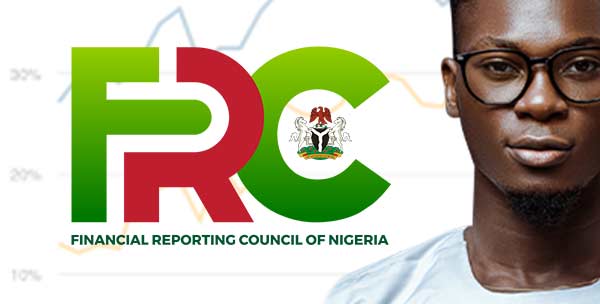
The FRC of Nigeria is an agency of the Nigerian federal government that was founded by Act No. 6 of 2011 concerning the Nigerian FRC. The Nigerian Department of Industry supervises the FRC. The Financial Reporting Council (FRC) is in charge of defining and publishing accounting and financial reporting standards that must be adhered to in the process of preparing financial statements for publicly traded corporations.
The federal government of Nigeria owns the Financial Reporting Council of Nigeria, and the ministry of Industry, Trade, and Investment of the federal government is in charge of regulating it. Their primary objective is to ensure that the standard for the production and dissemination of financial reports in Nigeria remains consistent across all public institutions and organizations. To put it another way, the FRC develops the model that is used by all public bodies across the country when they compile their financial statements.
The Financial Reporting Council of Nigeria, sometimes known as the FRC, was recently founded with the intention of regulating the financial reporting and corporate governance practices of corporations operating in Nigeria. Integrity, accountability, transparency, and justice are some of the fundamental principles that the Council upholds. They want investors to have the maximum faith in them, and they want oversight to have a good reputation. Additionally, they want quality assurance in accounting, auditing, and valuation.
The FRC or the Financial Reporting Council of Nigeria is the organization responsible for maintaining accounting and reporting standards. They are responsible for penalizing those who do not comply with the regulations that they impose on all public institutions, which they regulate. The FRC mandates that registration take place for all public entities operating within Nigeria.
It is the responsibility of the Financial Reporting Council of Nigeria to examine not only the accounting standards but also the financial reports of every company in the country. This evaluation is carried out on a regular basis. The Council is required to have the ability to promote the standards in these areas, in addition to examining the accounting standards and financial reports that are provided to these organizations. Additionally, it must be able to enforce the standard of accounting and financial reporting that these entities must adhere to.
President Muhammadu Buhari has tasked the newly-appointed Chief Financial Officer (CFO) of Nigeria with overseeing the implementation of sound corporate governance procedures across both the public and commercial sectors of the Nigerian economy. It is anticipated of him, amongst other things, that he will provide professional, institutional, and regulatory entities in Nigeria with guidance on matters connected to financial reporting and corporate governance.
The mission of the Financial Reporting Council of Nigeria is to develop and publish accounting and financial reporting standards that must be observed and followed during the preparation of financial statements of public interest entities. These standards are intended to ensure that accurate and reliable information is communicated to the public. They keep an eye on the percentage of people who comply with the reporting obligations outlined in the code of corporate governance that the body has decided to adopt.

The aim of the Financial Reporting Council of Nigeria is to develop and publish accounting and financial reporting standards that must be observed and followed during the process of preparing financial statements for organizations that are considered to be of public interest. They keep a close eye on how well the reporting obligations outlined in the code of corporate governance that was approved by the body are being followed.
The Financial Reporting Council of Nigeria is responsible for a number of key functions, one of which is the adjudication of cases involving non-compliance with its requirements. The Council is responsible for reviewing the standards of accounting and financial reporting, as well as promoting and enforcing them. It will also get notes from third parties that concern non-compliance to its standard. These notes will come from such third parties.
The Deputy Prime Minister, Dr. Mahamadou Issam el-Bashir, has provided an overview of his government's economic priorities for the coming year. According to Dr. Mahamadou Issam el-Bashir, these priorities will include: Fostering the expansion of the private sector and lowering the degree of economic volatility through the fortification of the country's financial reporting architecture; lowering the likelihood of financial market collapses and the adverse effects on the economy that these events typically have; Enhancing the budgetary discipline of the public sector and providing better value for the money spent; Facilitation of the creation of employment possibilities.